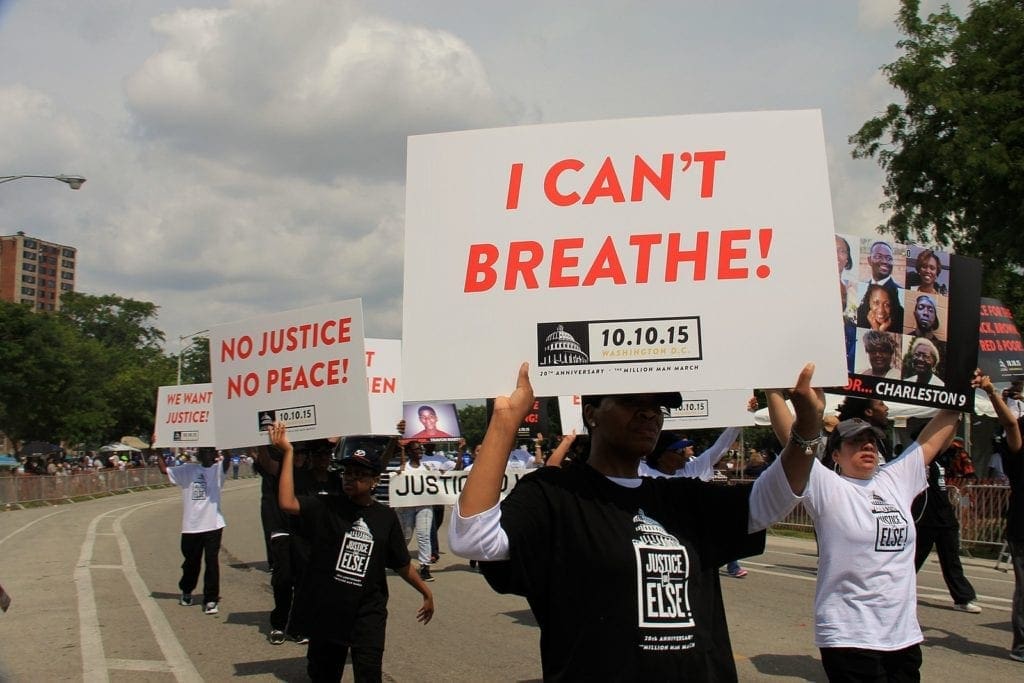The horrific murder of Eric Garner over the sale of some loose cigarettes shocked the country four years ago. And yet, none of the New York Police officers involved in the well-documented attack were held accountable.
Until now?
Garner’s call for clemency, in the shape of the now iconic “I can’t breathe” line, became a symbol of the struggle the African-American community experiences while trying to navigate the suffocating restrictions imposed by the government. But despite the public outcry, the city did little to hold the cops who perpetrated the crime responsible.

Now, the Department of Justice is looking into whether the police violated Garner’s civil rights. And the announcement came after the New York Police Department (NYPD) said it would put Officer Daniel Pantaleo, the cop who choked Garner, and his supervisor, Sgt. Kizzy Adonis, under an administrative trial next year.
Needless to say, both Garner’s family and critics of the NYPD and police brutality as a whole are disappointed that it took the city four years to act. Still, the police department’s decision may amount to very little, such as the men losing their jobs. And as we can all agree, holding individuals accountable for their own actions is the best way of explaining to other officers that it’s no longer OK to just use the “I was just doing my job” excuse.
While it’s clear that the NYPD was just hoping the federal government would take over this case so they wouldn’t have to stand up to the police unions that dominate New York, it’s also clear that no administrative action would be enough to send a message to officers that unjustifiable killing is not part of their jobs.
Enforcing The Law Calls For Violence
When we call for laws to be passed, whether it’s a piece of legislation meant to inhibit the use of certain products such as cigarettes or a law meant to criminalize the use of scooters, we must ask ourselves whether we’re willing to see police officers using deadly force to enforce them.
As Yale professor Stephen L. Carter wrote, “Every law is violent. We try not to think about this, but we should.”
He’s so serious about this that on his first day of class, he tells his students “never to argue for invoking the power of law except in a cause for which they are willing to kill.”
His point is simple. Government-backed enforcement of laws gives officers the blanket power to kill in order to enforce these laws. Officers, then, could argue that the buck doesn’t stop with them. And so far, they have been successful at making that point. After all, not many officers are held personally responsible for murder.
When thinking about what happened to Garner, it’s important to look at the cops’ actions both as irresponsible and as a symptom of a greater problem.
In a country where overcriminalization is a reality, we should be thinking long and hard about getting rid of laws, not giving cops more reasons to use deadly force to enforce them.




















